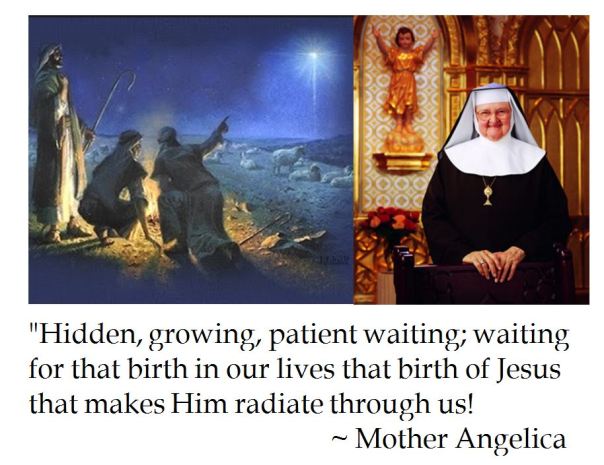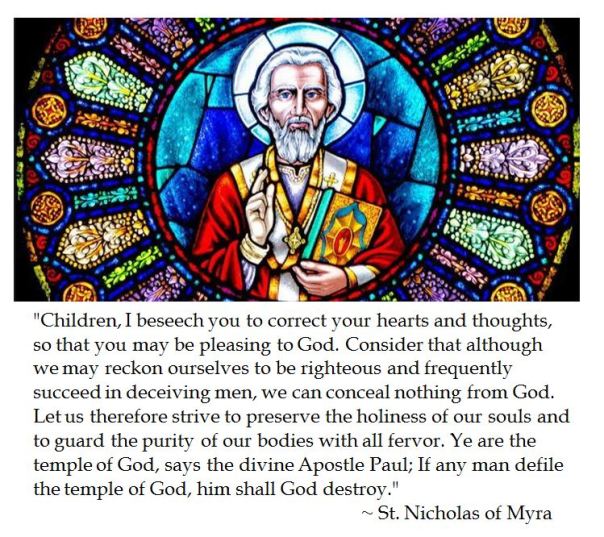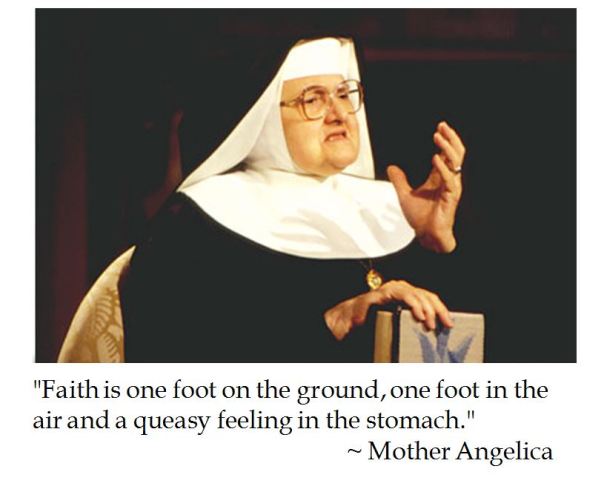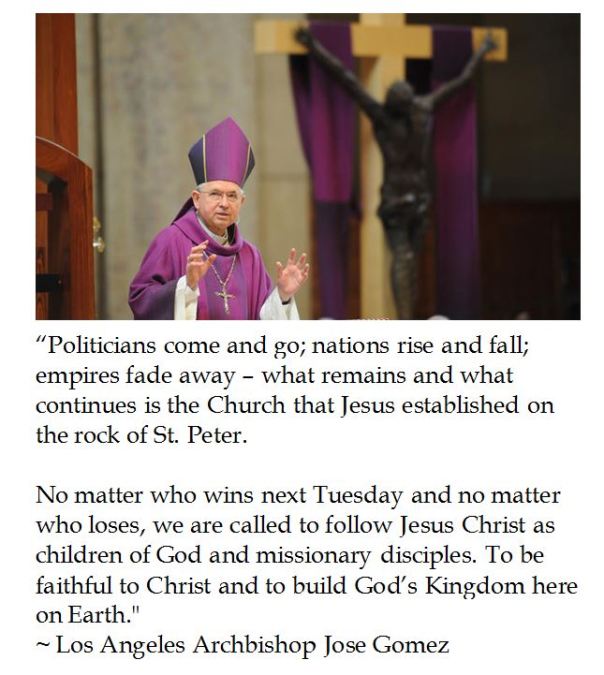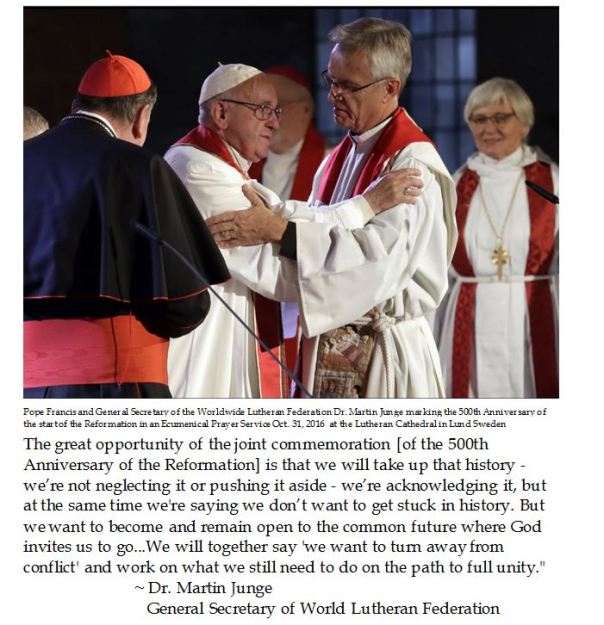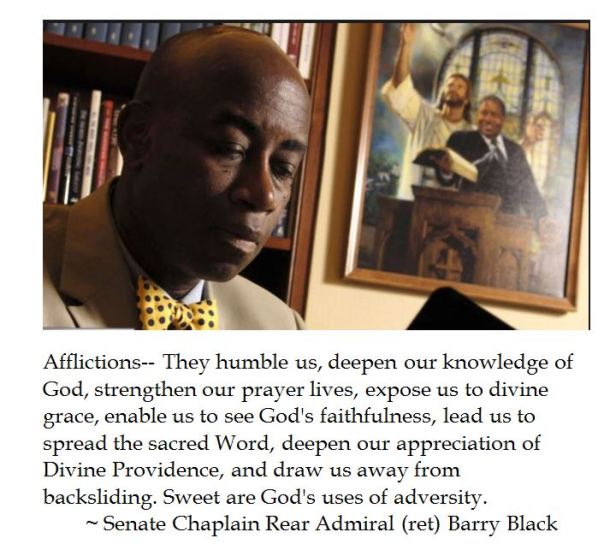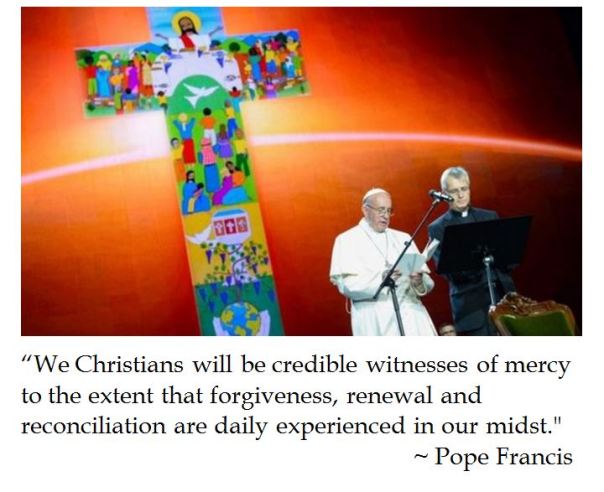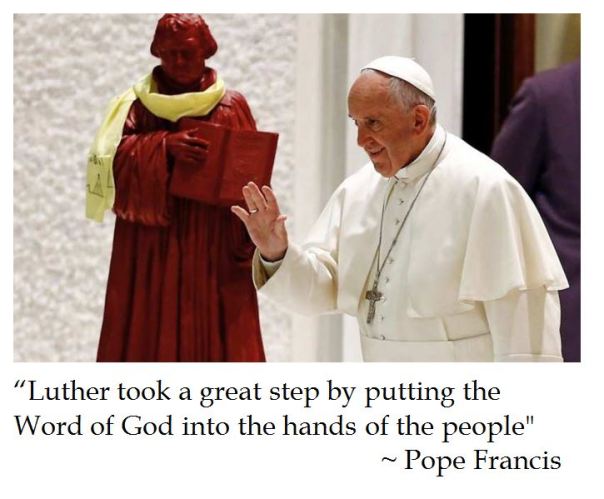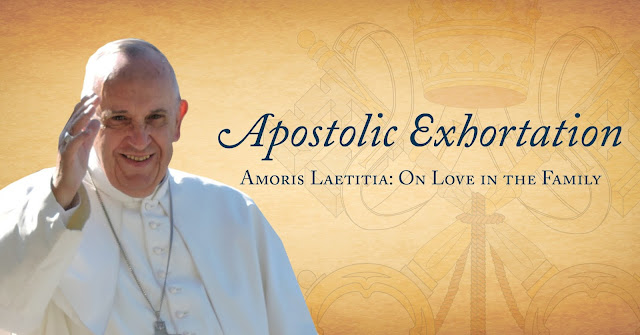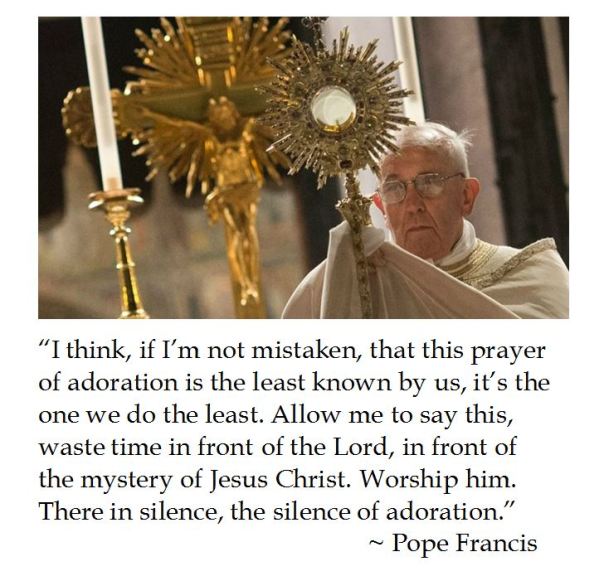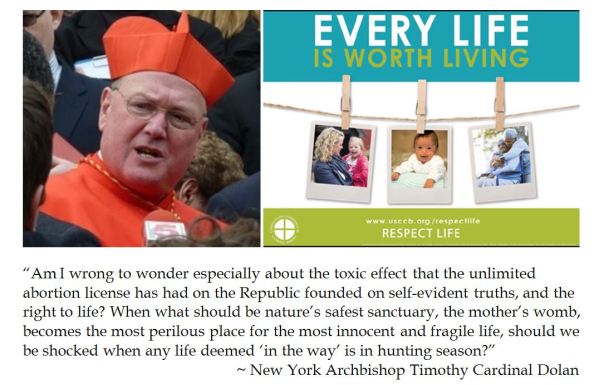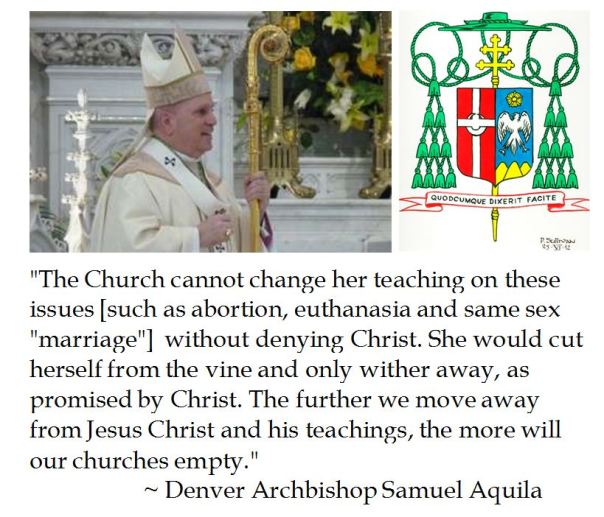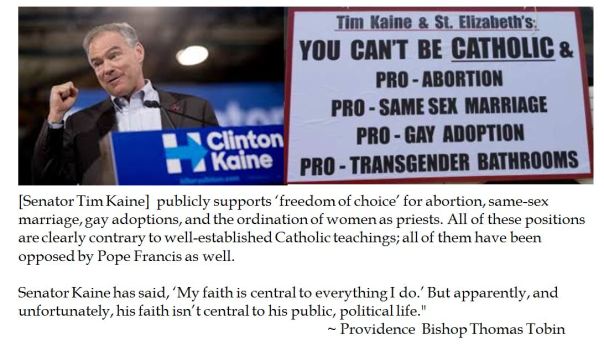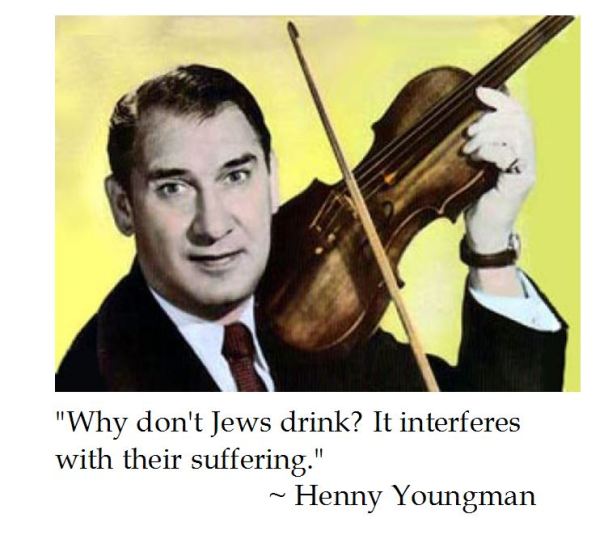Saturday, December 31, 2016
Sunday, December 11, 2016
Thursday, December 8, 2016
Tuesday, December 6, 2016
Sunday, December 4, 2016
Wednesday, November 30, 2016
Sunday, November 27, 2016
Wednesday, November 23, 2016
Blessed Miguel Pro on God's Presence
 |
Before the firing squad did their military duty, Pro forgave them all and shouted the battle cry of the rebellion and profession of faith "Viva Cristo Rey" (or Long live Christ the King).
At the beatification of Miguel Pro in 1988, Pope St. John Paul II proclaimed:
Neither suffering nor serious illness, neither the exhausting ministerial activity, frequently carried out in difficult and dangerous circumstances, could stifle the radiating and contagious joy which he brought to his life for Christ and which nothing could take away. Indeed, the deepest root of self-sacrificing surrender for the lowly was his passionate love for Jesus Christ and his ardent desire to be conformed to him, even unto death
VIVA CRISTO REY!
Sunday, November 20, 2016
Sunday, November 13, 2016
Friday, November 11, 2016
Monday, November 7, 2016
Sunday, November 6, 2016
Friday, November 4, 2016
Reassessing the Reformation
Pope Francis traveled to Sweden to join with the World Lutheran Federation to mark the 500th anniversary of Martin Luther posting the 95 thesis, which started the Reformation. Along with noting the great strides that Catholics and Lutherans had made in reconciling over the past 50 years, Pope Francis also noted how Luther took great steps in putting scripture into the hands of the faithful.
Dr. Martin Junge, the General Secretary of the World Lutheran Federation, noted that local Catholic and Lutheran churches carry different memories and different experiences of the Reformation. Junge acknowledged that some of them are painful. But Dr. Junge expressed optimism for future cooperation between believers of Christianity.
Hans Fiene, the driving force behind Lutheran Satire, took a tongue-in-cheek to marking the Quintcentennial of the Protestant Reformation.
It would seem that not all Protestants are the same.
While it can be a cathartic to chuckle about the past, this should be a short reprieve because of what faces Christendom. This is a time of great peril throughout the world for religious liberty as the faith is under attack by secular and sectarian forces. Thus, it is imperative that believers in Christianity recognize the commonality of our faith and work for Confident Pluralism. There may be aspects upon which we disagree, but we should apply the principles espoused by the Sixteenth Century Lutheran theologian Peter Meirdelin on "Unity on essential things, liberty on dubious things and charity in all things."
Thursday, November 3, 2016
Tuesday, November 1, 2016
Pope Francis on Witnesses of Mercy
During Pope Francis' visit to Sweden to mark the 500th Anniversary of the beginning of the Reformation, the Holy Father gave a homily which tied his favorite theme of mercy with ecumenism.
Catholics and Lutherans established a rapprochement on Justification in 1999, yet people still want to fight the Protestant Reformation today.
Pope Francis' quote underlines the leitmotif of companionship, albeit this time in the guise of mercy.
Monday, October 31, 2016
Sunday, October 30, 2016
Thursday, October 27, 2016
Rueing the Spirit of Amoris Laetitia
Preface:
This piece was originally written in October 2016 after participating in an Igantian retreat aimed at rolling out this Apostolic Encyclical to the faithful. The resulting article seemed too lengthy for publication and impossible to edit down to a "typical Readers Digest" version. However, I have passionately argued specifics from the analysis when discussing Amoris Laetitia and some have expressed interest in reading the piece.
Perhaps the capstone of Pope Francis’ Jubilee Year of Mercy is the promulgation of the Apostolic Exhortation-- Amoris Laetitia (The Joy of Love, 2016). Amoris Laetitia is Pope Francis’ reflections on the 2014 and 2015 Extraordinary Synods of the Family.
Pope Francis’ persistently reaches out to minister to those in the peripheries, especially those in irregular family situations. However Amoris Laetitia has created sparks from critics who wonder about how the document ought to be interpreted and ramifications from its proposed New Mercy implementation.
While Amoris Laetitia purports to reflect the Extraordinary Synods on the Family’s final report, it goes beyond chronicling the Synod Fathers conclusions. As is Pope Francis’ style, the Holy Father wrote a long work (356 paragraph 264 page English document) piece that mixes in pastoral suggestions along poetic, collegial (citing various Conferences of Bishops) and scriptural allusions as well as quoting the preceding pontiffs’ teachings.
Pope Francis’ charismatic communication style is not always exact in nature and his spontaneous utterances can seem contradictory.
Much of the material in Amoris Laetitia mirrored the Magisterium and the final report of the Synod of the Family Fathers.
- Marriage is a gift from the Lord between a man and a woman for life (para. 62) .
- Same Sex unions can not be equated with marriage (para. 52).
- Gender theory which denies sexual differences between men and women is rejected (para. 56)
- Blessed Pope Paul VI’s teaching from the encyclical Humanae Vitae (1968) which prohibited artificial contraception is reaffirmed (para. 68).
- Abortion is explicitly condemned and the right of health care workers conscience to respect the sanctity of life in their profession is stressed. (para. 83).
- The education of children is the “primary right” of parents (para. 84).
Despite this ample echoing of the Church teaching and tradition, there is some ambiguity on how the faithful ought to interpret Amoris Laetitia. Unlike other Apostolic Exhortations, Pope Francis proffered pastoral perspectives which are certainly sagacious but are obviously not ex cathedra, such as suggesting couples take quality time to listen to each other (para 137). Such rhetoric seems reminiscent of documents from Vatican II which sought to persuade rather than inculcate.
The considerable length of Amoris Laetitia, along with a couple of ambiguous paragraphs make it more more than conceivable that a similar phenomenon of “the Spirit of Amoris Laetitia” could overshadow the many positive points of this Apostolic Exhortation. Those steeped in Jesuit education may recognize Ignatian elements from the Spiritual Exercises such as accompaniment, discernment and integrating weakness, but they seem insufficiently contexualized and may be unfamiliar to the Church Universal.
The uncertainty on how to understand Amoris Laetitia is amplified by a predicate for Pope Francis’ reflections:
Since ‘time is greater than space’, I would to make it clear that not all of the discussions of doctrinal, moral or pastoral issues need to be settled by interventions of the Magisterium. Unity of teaching or practice is certainly necessary in the Church, but this does not preclude various ways of interpreting some aspects of that teaching or drawing certain consequences from it. (para. 3).
That seems to suggest that there may be back door mechanisms which circumvent customary Church procedures while also affirming the need for a unity of Church practice. Hence, it crucial to discern the hermaneutic for assessing Amoris Laetitia.
Employing Pope (Emeritus) Benedict XVI’s dialectic for Vatican II Golden Anniversary observances, should Amoris Laetitia understand through a be a hermaneutic of continuity or a hermaneutic of rupture? Put another way, does the New Mercy restate and contemporize traditional teachings or does Amoris Laetitia manifest a new way to address irregular family challenges?
As befitting the Jubilee Year of Mercy, Pope Francis reaches out to the peripheries to reach faithful who might feel estranged from Mother Church. While that is laudable to bring souls back into the fold of the Church, it seems extraordinary for Pope Francis to assert:
It is important divorced who entered into a new union should be made to feel part of the Church. “They are not excommunicated” and they should not be treated as such, since they remain part of the ecclesial community.(para. 243).
This intimates an innovation, as the Magisterium holds that a sacramental marriage is indissoluble hence a civil remarriage without obtaining an annulment (technically a certificate of nullity), then those in the irregular marriage are committing adultery.
Many people mistake Excommunication (barring reception of the sacraments) as a punishment. Some think that it is kicking someone out of the Church. So Pope Francis is quite right to note that they remain part of the Church. But traditionally they would be prohibited from unworthily receiving sacraments, especially the Body and Blood of Christ in a state of grave sin as it imperils their souls.
Pope Francis, however, considers the simple application of Canon Law is characteried as bureaucratic. Pastors are extolled not to throw moral stones and be done with irregular situations. In fact, a footnote states: “I want to remind priest that the confessional must not be a torture chamber, but rather an encounter with the Lord’s mercy (para 305 footnote 351).
Keeping to his Ignation roots, Pope Francis encourages pastors ministering to such irregular marriages to accompany the couple and consider mitigating factors (para. 301). Supposedly, in certain situations, an irregularly married couple may grow in grace while receiving the Church’s help, which may include the sacraments. This is a law of gradualism, which Pope Francis oddly attributes to Pope St. John Paul II’s Apostolic Exhortation Familiaris Consortio (1981), but more closely tracks with Cardinal Walter Kasper’s theological take on gradualism.
This is the crux of the sparks regarding Amoris Laetitia. This footnote seems like a pastoral end around of Church law, done for the sake of mercy, to a couple which has not resolved impediments. This goes beyond pastoral provisions and calls into question adherence to the traditional teachings of the Church and the meaning of the sacraments.
Chapter Eight of Amoris Laetitia postulates that there may be some situations which divorced and civilly remarried Catholics can still access the sacraments despite not having an annulment. During the 2015 Synod on the Family, Prefect for the Congregation of the Doctrine of the Faith Gerhard Mueller stated: "The valid and sacramental marriage is either indissoluble or dissoluble. There is no third option." of So if an irregular couple can still receive sacraments, in the name of mercy, then what is the validity of the rule?
One of the hard teachings in the Gospel of Matthew is the reinstatement of natural marriage.
Jesus replied, "Moses allowed you to divorce your wives because your hearts are unyielding. It it wasn't that way from the beginning. I say to you that whoever divorces his wife, except for sexual unfaithfulness, and marries another woman commits adultery." (M 9: 8-9)
That states things pretty clearly from a scriptural standpoint. Amoris Laetitia points to other examples in which Jesus has mercy on people in irregular situations, like the woman who was about to be stoned for adultery or the woman at the well.
But certain statements by Pope Francis and the theology concealed in pastoral provisions have cast doubts on the Catholic concept of sacramental marriage, as well as the precepts for other sacraments. In June 2016, Pope Francis posited that: the great majority of our sacramental marriages are null" because they do not have a proper understanding of permanence and commitment (official transcripts modified this quip to "a portion").
The gradualist approach, as articulated by Cardinal Kasper, moots the Messiah's invocation of natural law of marriage. It can be liked to how Orthodox Christianity handles divorce and remarriage for economia (the Orthodox Church’s concern for the salvation of people) giving an irregular couple a tentative blessing after a period of penance. Since Amoris Laetitia sought to avoid doctrinal interventions of the Magisterium, this comparative theological perspective on second marriages was not spelled out.
Kasperian gradualism looks to expand the playground between dogmatic principle and pastoral consequence which he attributes to Pope St. John Paul II's concession in Familaris Consortio Kasper exaults the good which can spring forth from the second (non-sacramental) civil marriage of love, commitment and exclusivity. This assertion is troubling since there is still a valid sacramental marriage hence ecclesially there is neither commitment nor exclusivity to the sacramental spouse.
Pope Francis gives latitude to pastoral counseling and may recommend that the counseled couple resume church life in another parish so as not to create scandal. For Cardinal Kasper, the scandal is not irregular Catholic couples unworthily receiving the sacraments but denying the sacraments
In this pastoral process, the couple is to be helped in discernment which “guides the faithful to an awareness of their situation before God” (para. 300). Essentially, this is an appeal to Thomistic sense of conscience, which if sincerely held may countermand established customary procedures. This pastoral process is supposed to be limited to certain situations which:
[I]n an objective situation of sin–which may not be subjectively culpable, or fully such– a person can be living in God’s grace and charity, while receiving the Church’s help to this end. (para 300)
That passage seemed rather muddied, but practical examples would illuminate how the Church is impeded from offering mercy to people in irregular situations.
So during a Christian Life Community retreat which contemplated Amoris Laetitia, I asked for two concrete examples in which this exception would apply. One hypothetical was a divorced man who was civilly remarried but living a devout Catholic life without an annulment but who was informed that he only had a few months to live. It was contended that it would not be merciful for this poor soul to be excluded from the sacraments in his dying days.
Another abstract example would be the case of a woman who was divorced and civilly remarried who was chary to go through with an open and shut annulment process because she did not want to think about much less interact with her abusive spouse.
In both instances, those in an irregular situation chose to violate their vows and circumvented the Church rules to be publicly united with another spouse, but because of exigencies, the law should not apply. In law school, one is taught that difficult cases makes for bad law. Thus the suspicion that it is likely that these exceptions become the rule.
In America, this pastoral provision may not matter, but there are pecuniary interests in other regions to lessen the stigma of irregular relationships. In Germany, the Church tax is 8% of one’s income (which is 70% of church revenues). German bishops have denied sacraments to those who do not pay. Many in irregular marriages are hesitant to pay as they were not eligible for to receive the Eucharist. Amoris Laetitia offers a way around that impediment.
There are systematic challenges with this pastoral modus vivendi for irregular couples. Firstly, why does not Amoris Laetitia point divorced and remarried couples into the annulment process?
Pope Francis declared that sacraments should be free of charge, thus removing any cost barrier from seeking an annulment. Moreover, there is a 97% success rate for finding a nullity of marriage. By suggesting this pastoral provision of accompaniment, discernment and integrating weakness, there seems to be little need to do the formal scrutinizing by a Roman Rota when "Fr. Friendly" can just counsel the irregular couple and skirt the formalities by changing to another parish.
Juristically, there is still a sacramental marriage which has been super-ceded in practice by a second civil marriage that Amoris Laetitia seeks to accommodate. This calls into question whether sacramental marriage is dissoluble or if under Amoris Laetitia that we say that it is, much like Americans pretend the Tenth Amendment is good law but jurists pay it no mind.
There is also a conundrum of different applications of the pastoral approach towards irregular couples. Germany would be quick to regularize divorced and remarried Catholics so that they could receive the sacraments (and the Church receive its government payments). But the Polish Conference of Bishops is adamant against applying this modus vivendi. Germany and Poland share a common border, so on one side cheap grace is permitted and the other side deprives irregular couples the sacraments. So much for one Holy Catholic and Apostolic Church.
Granted, we are all sinners and in need of God’s mercy. Grave sin is typically confessed in the Sacrament of Reconciliation. But a Catholic who is divorced and then civilly remarried made a public commitment which contradicts his or her sacramental marriage. The question remains, as posed by Fr. Tom Reese, S.J. whether those in irregular relations committed one sin in the civil marriage or if it is a continuing sin each time the couple engages in the marital act.
It is liturgical legerdemain to claim that gradualism need not involve the Magisterium. Confession is to make manifest times which a penitent acts contrary to the way of God. The Sacrament of Reconciliation seeks contrite hearts who vow to sin no more. But if the sacramental marriage is not annulled yet the civil marriage is regularized in the eyes of the Church, then it seems to make the Magisterium teaching that the marriage covenant is indissoluble to be mere words.
Furthermore, if the irregularly married couple is counseled to resume the sacramental life without clarifying their vocational status or radically changing marital behavior (i.e. no sex) then does this not circumvent the precept that the faithful should not be in grave sin to receive the Eucharist?
There is the danger that a similar situation could happen by applying the merciful pastoral provisions of Amoris Laetitia.. In many parts of the world, the Latin Church faces a shortage of priests. Amoris Laetitia requires a considerable amount of study, prayer and then expending time to put into pastoral practice. Amoris Laetitia requires discerning one’s conscience. It is questionable how much honing must go into forming consciences in this day and age with the dominance of secular values which contravene being right with God.
The interpretation of Amoris Laetitia is key. It is reasonable to consider Amoris Laetitia as wrapping innovation within external affirmations of the Magisterium via pastoral provisions. Pope Francis imploring that there is no ex-communication is laudable but does that really reflect the traditions and teaching of the Roman Catholic Church?
The Apostolic Exhortation goes far beyond what the Synod Fathers agreed upon, but that has been the course of these Family Synod histories.
The Synod Fathers did not contemplate a pastoral provision which bypassed current procedures for irregular marriage, yet it was promulgated in a footnote. The authenticity of interpreting the footnote was affirmed by Pope Francis in a secular newspaper and a letter to the Argentine Conference of Bishops.
There is a credible perception that the Synod of the Family was rigged to encourage certain outcomes.
- The 2014 relatio (working document) introduced ideas on appreciating homosexuals gifts to the Church that were never discussed as parts of the first weeks’ discussions. Moreover, this interim report was released to the press before it was given to the Synod Fathers.
- Archbishop of Durban Winfried Cardinal Napier was told by a Synod official in 2014 Synod "This thing is being manipulated. This thing is being engineered. They want a certain result."
- During the 2014 Synod, Cardinal Kasper expressed exasperation that the African bishops were holding the Synod back on same-sex marriage.
- In the 2014 Synod, the fathers voted on what should be included. Several controversial sections, like cohabitation, same sex marriage and Communion for irregular couples, which failed yet Pope Francis included them on the 2015 Synod agenda and they were addressed within Amoris Laetitia.
- There were some slights in naming Synod Fathers who were not invited back to participate who held a more traditional line (such as Cardinal Raymond Burke) whereas an influential emeritus Bishops over the voting age who aligned with the New Mercy (namely Cardinal Kasper) participated.
- Synod 2015 Father Australian Cardinal George Pell was absolutely certain that the final report of the Synod on the Family made no reference to communion to divorced and remarried Catholics. Yet at the same time, German Conference of Bishops President Cardinal Reinhard Marx praised the Synod for being a "real step forward" in pastoral care for divorced and civilly remarried Catholics. Judging from Amoris Laetitia and the emphasis on Pope Francis' footnote 351 as being the authentic key for interpretation, it seems that the Synod Fathers' deliberations were moot.
- Pope Francis named Archbishop Vincenzo Paglia and Monsignor Pierangelo Sequeri to lead the John Paul II Institute for Studies on Marriage and the Family. Paglia has expressed opinions which endorse Kasperian Gradualism and is eager to implement Amoris Laetitia. This is significant because if the is just a pastoral option, then implementing it sounds more systematic.
Some longstanding virtues of the Catholic faith is to have surety of authority in Scripture, Holy Tradition and the Magisterium. Likewise, in the Roman Church, there has been a uniformity in implementation. Sacraments are not mere signs but efficacious means of grace for those spiritually disposed to receive them. Amoris Laetitia, the conduit for the New Mercy, may break that mold and many of the faithful many find themselves ruing the Spirit of Amoris Laetitia.
It is a pity that there is concerted effort by leaders in the Church to take an ultramontainist approach to implementing Amoris Laetitia, when the interpretation via a footnote goes far beyond what the Synod of the Family's final report held, and also seem to contravene a hard teaching of Jesus Christ.
Monday, October 24, 2016
Jack Chick Obit: Adios to One Crazy Chick
Jack T. Chick died at the age of 92 in Glendale, California. Chick was infamous for publishing fundamentalist Christian tracts in the form of comic books for six decades and distributed over 750 million copies and has been translated into over 100 languages.
Early in his evangelizing apostolate, Chick discerned that the most effective way to reach those who "weren't saved" was via comic books. Chick supposedly was inspired by the propaganda comics of the Chinese Communists in the 1950s. Chick was not a skilled artist but started to use others artists sketches and not attributing the pieces for a decade, until it came out that he was using Fred Carter's handiwork.
Chick was an intensely private person. He evangelized through comics because he was too shy to talk to others about his faith. Later, Chick became a recluse having no pictures taken of him (aside from two pictures from his teens). Chick also refused all professional interviews after 1975 because he was fearful that Catholics (particularly the Jesuits) would kill him.
In addition, Chick claimed that the Catholic Church supposedly started Nazism, Communism, Islam, Masonry, Jehovah's Witnesses, Mormons and the New Age movement. Chick pinned the assassination of Abraham Lincoln and John F. Kennedy on the Vatican as well as the Holocaust. Continuing in this craziness, Chick surmised that the Vatican runs the United Nations and global finances and the Illuminati.. Amongst the biggest whoppers was that the Vatican has a super computer that tracks the names of every Protestant in the world.
During the 1980s, Chick did eight comic books based on the testimony of Alberto Riviera, allegedly a former undercover operative of the Jesuits in Spain who was sent to infiltrate and destroy Protestant churches and institutions. Riviera claimed to have been secretly made a bishop but he had a conversion and became a fundamentalist preacher who saved his sister from a nunnery in London. Unfortunately, there are no public records of the clerical adventures of Alberto Riviera aside from Chick Publications.
Catholics weren't the only Christians spared from Chick's emnity, as he also attacked Southern Baptists (N.B. Chick was an Independent Baptism who believed in premillenial dispensationalism), and Latter Day Saints et ali.
Aside from the great volume of work that Chick Publications produced, Chick tracts were featured by the Smithsonian American History Museum in an exhibit on American Pop Culture. Even comic strip critics had to acknowledge Chick's work.
One of Jack Chick's early successes was an early 1960s tract of a playboy who dies and is forced to watch all of his life's foibles on a big screen before the pearly gates of Heaven. Perhaps during this Extraordinary Jubilee Year of Mercy, Chick's imagined screening of "This Was Your Life" at the Pearl Gates Cinescreen won't be taken as "The Nightmare World of Jack Chick" but will be viewed as a Comedy of Manners.
As word of Chick's death spread on social media, perhaps the kindest yet most ironic tribute came from a Catholic priest.
H/T: Catholic Answers
Los Angeles
Comic Strip Critic
Sunday, October 23, 2016
On Wasting Time with the Lord
Silent prayer before the Lord can be challenging in this day and age. For those not sequestered away in a contemplating monastery, it is hard enough to block out enough time and block out the world to "waste time with the Lord". But it also is counter to an impulse to approach the Divine with a laundry list of supplication, either for ourselves or for the world.
Sitting in silence and reverence, especially in Eucharist Adoration, offers the opportunity for God to speak to us. Rarely is it words or an apparition, but it is giving the Trinity space to convict us of whispers in our lives that are drown out by the clutter of our very existence.
Silent adoration can also express a reverence for the gift of salvation and remembering His sorrowful passion which bought us back from the wages of sin.
Saturday, October 22, 2016
Thursday, October 20, 2016
Wednesday, October 19, 2016
Visioning Confident Pluralism at Religious Freedom Center Forum
 |
| [L] Charles Haynes [C] John Inazu [R] Yuval Levin at Religious Freedom Center 10/28/2016 [Photo BDMatt] |
 The Religious Freedom Center at the Newseum gathered six scholars from eclectic perspectives and ideologies to consider “Our Fractured Republic, Religious and Political Divides and the Role of Pluralism”. The keynote speaker for the forum was Dr. John Inazu, a professor of law and religion at Washington University in St Louis.
The Religious Freedom Center at the Newseum gathered six scholars from eclectic perspectives and ideologies to consider “Our Fractured Republic, Religious and Political Divides and the Role of Pluralism”. The keynote speaker for the forum was Dr. John Inazu, a professor of law and religion at Washington University in St Louis.In a diverse nation, we must accept chaos, control or co-existence. Dr. Inazu postulated to achieve confident pluralism in America, we must protect the rights of assembly and association, facilitating civil dissent in public forums and not allow government orthodoxy to discriminate in funding. There seemed to be across the board agreement by the forum to these noble ends of confident pluralism.
The challenge seems to be inspiring a tolerance for differences in co-existence while respecting others and allowing for a space for difference. Tolerance along with humility and patience helps build a common ground without finding a common good. But this idyllic existence is mooted by the litigious manner in which contentious public policy is implemented.
Conservative commentator Yuval Levin lauded localism, which allows contending parties to put a face on their opposition and possibly find compromises. Yet most First Amendment controversies are pushed by outside forces and look to establish bright line rules which curtail the fundamental freedom of believers.
The panel seemed to agree that the Indiana Wedding Cake controversy could have been easily averted if LQBTQQ?? couple would have looked for a baker who did not object to participating in their nuptu\ial ceremony. However, this naively assumes that the homosexual activists were just looking for a baker instead of a target to test RFRA through litigation and to possibly hurt politicians who supported the Religious Freedom Act (such as Indiana Governor and Republican Vice Presidential nominee Mike Pence). To be fair, it was observed that the Indiana RFRA kerfluffle was used as a wedge issue by both sides.
 Another instance in which common sense could quash controversy concerns physicians who morally object to filling certain prescriptions. Clearly, what was meant is abortofacients, but the mere mention of contraception or abortion would wreck a spirit of compromise. With the caveat that another in-house pharmacist could fill the script without controversy or inconveniencing the customer, this would be a terrific compromise.
Another instance in which common sense could quash controversy concerns physicians who morally object to filling certain prescriptions. Clearly, what was meant is abortofacients, but the mere mention of contraception or abortion would wreck a spirit of compromise. With the caveat that another in-house pharmacist could fill the script without controversy or inconveniencing the customer, this would be a terrific compromise.Alas, that is not generally the way things go in America nowadays. State licensing boards have demanded that doctors must be able to fill all prescriptions. Moreover, the HHS Mandate read into Obamacare almost deliberately picked a fight with the Little Sisters of the Poor to force them to violate their consciences to have contraception coverage. Thus, progressives have shown they value capitulation rather than compromise for religious liberty.
Dr. Charles Haynes, the founding director of the Religious Freedom Center, drew upon his decades of experience with First Amendment issues in public schools, contended that we are capable of finding pluralism but what we lack is trust. Perhaps, but this sense of optimism should be tempered by the autocratic manner in which the Department of Education is forcing implementation of transgender bathrooms in public schools, despite debate and locally achieved compromises. The same ukases can be applied to hot button religious liberty issues in which Washington threatens funding unless it it done the Feds way.
The assembled panel universally took umbrage to efforts to forestall an implementation of Sharia Law as being anti-Muslim Islamophobia. The manner in which there has been propaganda and suspicion cast against American Muslims was likened to the virulent anti-Catholicism of the 1850s No-Nothing Party. In fact, the parallel was extended as Catholics in the past were considered to support a foreign prince (i.e. The Pope) thus their loyalty to America was considered suspect. There was general assent to the idea that in 50 years, Muslims may just be considered another religious faction with conservative cultural predilections.
Of course, this sunny take ignores that Islam is a holistic system which merges worship with the body politic, particularly in places which it gains a significant minority or de facto majority status. In such circumstances, it becomes quite challenging to live a confident pluralism. This rosey take also is blithely unconcerned with the significant funding of mosques from Salafist sources. Furthermore, it dismisses polling of American Muslims which shows majorities agreeing with jihadist activities. But for this crowd, mentioning these inconvenient truths may make one a pariah in polite “educated” circles.
The ray of hope for confident pluralism was extolled in Utah. In 2015, Mormon church leaders worked with LGBTQQ? activists to pass a bill which banned homosexual discrimination in housing and employment, which protecting religious organization and their institutions and also included a “carve out” for people with conscience objections. It was hoped that the “Utah Compromise” could be a template for the rest of the nation.
It should be noted, however, that Utah has some special circumstances which may make it more of an outlier rather than a vanguard of confident pluralism. Utah is a small, relatively homogeneous state that is dominated by the Latter Day Saints Church. Mormons may be acutely aware of minority rights considering their tenuous status in much of the 1800s. While the spirit may be willing to act as a model, it may be impossible to replicate this cooperation elsewhere, especially when gadflies can wreck havoc on institutions and long accepted social norms, and when progressive power can dictate from bureaucracies, executive action and the courts.
While it was pleasant not to have an event in which public figures exchange insults like in Election 2016 debates, the general consensus of this Religious Freedom Center panel sometimes lacked a rigor on mediating profound differences. It seemed reminiscent of a United Council of Churches pronouncement which acceded to the same general vision, albeit via different paths. Considering that many of the hot button issues affecting religious liberty today are LGBTQQ?, gender equality, immigration and abortion, it is a pity that a Catholic scholar who represented the Magisterium (Catholic Church teachings) was not there to mix it up. There may have been some illuminating agreement as well as an opportunity to invoke compromise.
Labels:
Charles Haynes,
History,
John Inazu,
LGBTQQ?,
Mormon,
Newseum,
Quotes,
Religious Freedom,
Religious Freedom Center,
Religious Liberty,
RFRA,
T.R.O.P.,
Utah Compromise,
Yuval Levin
Monday, October 17, 2016
Sunday, October 16, 2016
St. Aloysius Gonzaga Celebrates Being a Child of God
St. Aloysius Gonzaga is an Italian aristocrat who renounced his wealthy inheritance to become a Jesuit. He died at the in 1591 age of 23 as a result of caring for victims of an epidemic in Rome. Aloysius Gonzaga was beatified in 1605 and canonized in 1726. St. Aloysius Gonzaga is consider a patron saint of youth, AIDS patients and AIDS care givers.
During his short life, St. Aloysius Gonzaga had a special devotion to the Mary. Considering the prayer which he composed to the Blessed Virgin Mary as seen through the lens of his life, we can appreciate why he so valued being a child of God.
O holy Mary, my Mistress, into thy blessed trust and special blessing, into the bosom of thy tender mercy, this day, every day of my life and at the hour of my death, I commend my soul and body; to thee I entrust all my hopes and consolations, all my trials and miseries, my life and the end of my life, that through thy most holy intercession and thy merits, all my actions may be ordered and disposed according to thy will and that of thy divine Son. Amen
Saturday, October 15, 2016
Raising Kaine on the Centrality of Faith in Public Life
Senator Tim Kaine (D-VA) was picked by Democrat Presidential nominee Hillary Clinton (D-NY) partly because he could appeal to some progressive Catholics who are drawn to his social justice warrior background.
During the campaign, Kaine has claimed that he was a Pope Francis Catholic. During the Vice Presidential debate, Senator Kaine tried to do the typical CINO (Catholic-In-Name-Only) two step in which he claims to personally be a practicing Catholic but does not impose his views on others.
During the campaign, Kaine has claimed that he was a Pope Francis Catholic. During the Vice Presidential debate, Senator Kaine tried to do the typical CINO (Catholic-In-Name-Only) two step in which he claims to personally be a practicing Catholic but does not impose his views on others.
Even though Providence Bishop Thomas Tobin is not a Jesuit, he applied an Ignatian principle of discernment to Senator Kaine's contention that faith is central to his life.
Perhaps between campaign stops, it would be fruitful for Senator Kaine to read Bishop Tobin's books Effective Faith: Faith that Makes a Difference (2009) and Without a Doubt (2001) to discern how the faithful can effectively form minds, change hearts and enlighten the world in which we live.
Friday, October 14, 2016
Archbishop Chaput Comments on Wikileaks Catholic Bashing and the 2016 Election
 Wikileaks has released some batches of John Podesta's emails which reveal that Hillary Clinton confidants have some scathing views of Catholics. Some had suggested that there should be a "Catholic Spring" to overthrow "a middle ages dictatorship" and impose a democratic cult which honors gender equality (and presumably progressive approaches to hot button social issues). Other emails mocked how conservative Catholics were pseudo-intellectuals who spouted sophisticated sounding nonsense.
Wikileaks has released some batches of John Podesta's emails which reveal that Hillary Clinton confidants have some scathing views of Catholics. Some had suggested that there should be a "Catholic Spring" to overthrow "a middle ages dictatorship" and impose a democratic cult which honors gender equality (and presumably progressive approaches to hot button social issues). Other emails mocked how conservative Catholics were pseudo-intellectuals who spouted sophisticated sounding nonsense.Philadelphia Archbishop Charles Chaput responded to these scathing critques stemming from the highest echelons of Hillary Clinton's 2016 Presidential campaign.
It is quite a clever turn of phrase of Archbishop Chaput to quip:"In a nation where 'choice' is now the unofficial state religion, the menu for dinner is remarkably small." Chaput pithily impeaches America's obsession with choice (abortion), reflects on dangers to America's tradition of religious liberty while lamenting the paucity of choices to be elected Commander-in-Chief.
Not withstanding the sardonic style of the riposte, Archbishop Chaput has consistently eviscerated both major party Presidential candidates, as seen from his recent speech at Notre Dame University.
We love to label in order to create intellectual order in our minds. But terms like liberal and conservative do not translate well into Church politics. Archbishop Chaput can be considered a conservative in Church circles, as he is cautiously embracing implementation of the New Mercy contained in Pope Francis' Apostolic Exhortation Amoris Laetitia. However, it would be mistaken to automatically assume that Chaput is a political conservative or would ever vote for Donald Trump.
It is a pity that Archbishop Chaput was passed over to be named a Cardinal by Pope Francis' recent announcement for the November 19th consistory. Philadelphia, like the large Catholic Archdiocese of Los Angeles, is traditionally blessed with a Cardinal. Pope Francis, however, chose three "red hats" which went to Dallas, Indianapolis and to Archbishop Blase Cupich from the longstanding Cardinal seat of Chicago.
Wednesday, October 12, 2016
Clinton Campaign Chortles at Conservative Catholics
In email exchanges with the chief of Hillary Clinton's Campaign chief Jennifer Palmieri and John Podesta, Clinton confidant John Halpin mocked Catholics.
The fellow from the Center for America Progress claimed that no one could understand subsidiarity or Thomistic thought.
It is unsurprising that a progressive fellow like Halpin can not fathom the concept of subsidiarity, which advocates devolving decision-making to the lowest level possible. Within Catholic circles, subsidiarity is understood as a social doctrine that social bodies exist for the sake of the individual. Progressives who always opt for big government solutions would think such words are gibberish.
As for Thomism, that refers to philosophy originating from St. Thomas Aquinas the prizes the individual's educated and sincerely formed conscience. Not that the Clinton campaign would care, but Pope Francis' recent Apostolic Exhortation Amoris Laetitia (2016) employs Thomism to circumvent some impediments for some irregular relationships (e.g. divorced Catholics who civilly remarry).
During the Vice Presidential Debate, Democrat VP pick Tim Kaine tried to laud Hillary's supposedly deep religious roots in Methodism, while playing up his progressive Catholic perspectives. The Podesta Email leaks from Wikileaks impeaches this conceit and shows the cynicism of the Clinton campaign towards people of faith, especially practical Catholics.
Labels:
Amoris Laetitia,
Catholic,
Center for American Progress,
Jennifer Palmieri,
John Halpin,
John Podesta,
Pensee,
Politics,
Pope Francis,
Quotes,
Subsidiarity,
Thomism,
Tim Kaine,
Videos,
Wikileaks
Tuesday, October 11, 2016
Henny Youngman on Suffering
Henny Youngman, the Catskills Comedian, quip about Jewish suffering might bring some levity to the commemoration of Yom Kippur, the day of atonement. Yom Kippur marks the end of the High Holy Days on a Jewish Calendar, which began at Rosh Hashanah, the Jewish New Year.
Yom Kippur is a solemn day on which practicing Jews spend most of the day in synagogue as the the fate of each person' is sealed in the book of life. It is 25 hours of prayers and fasting.
Motivational speaker Charlie Harary offered a different take on suffering from one's mess for Yom Kippur .
This reflection on Coming Clean on Yom Kippur requires repentance of heart but allowing God to go beyond our frailties so all is right with the world (shalom). This has the suffering make sense.
Subscribe to:
Posts (Atom)

